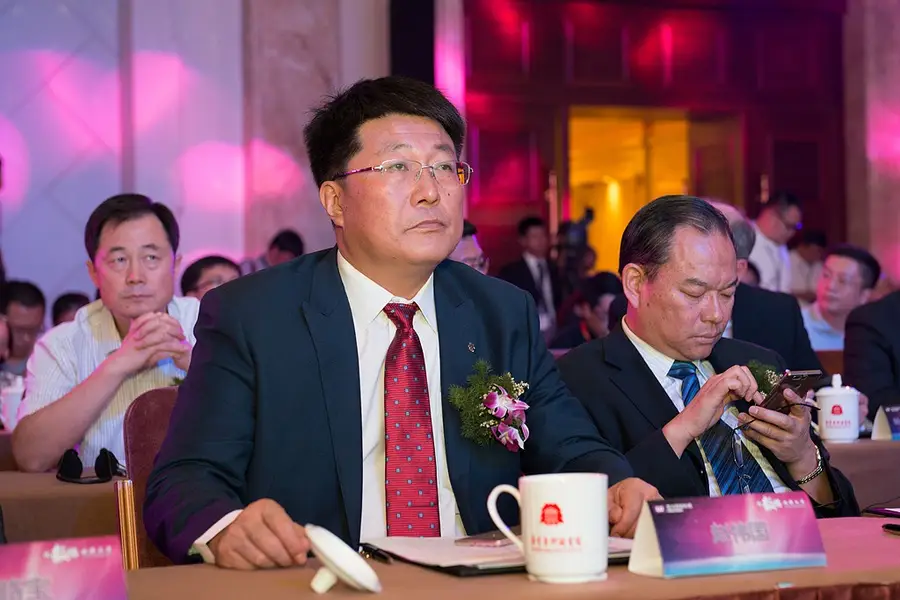Magnate’s downfall spotlights China’s troubled chip love affair, in life and in death

Zhao Weiguo, former chairman of the once highflying Tsinghua Unigroup, received a suspended death sentence last week for corruption
Key Takeaways:
- The rise and fall of Zhao Weiguo, who was sentenced to death last week for corruption, is closely intertwined with China’s aggressive chip ambitions, and reveals its cracks
- The vehicle for Zhao’s chip empire, Tsinghua Unigroup, has been restructured after defaulting on its debt and is currently on a less ambitious path
By Xiao Lin
A courtroom in a remote city in Northeastern China’s Jilin province wouldn’t normally attract too much attention, focused mostly on local matters. But a verdict it delivered last week resonated not only in China, but around the world, as the career of a man who once embodied China’s aggressive ambitions to build up its microchip industry, came to a quiet end.
The story of Zhao Weiguo, who received a suspended death sentence, is in many ways the story of China’s race to catch up with the West in its ability to make microchips that power everything from microwave ovens to supercomputers. But it’s also the story of the many problems that have come with that campaign, including its hundreds of billions of dollars in state support.
Zhao, 58, committed embezzlement, abused his power to benefit relatives and friends, and caused significant losses to the state and a listed company while chairman of state-backed Tsinghua Unigroup, according to numerous media reports, citing a verdict from the Jilin Intermediate People’s Court.
A photo on the day of the verdict shows a humbled and gaunt Zhao in court, flanked by two policemen — a far cry from the confidence-exuding man whose acquisitions were legendary, including ambitions at one point to buy Taiwan’s TSMC, the world’s largest and most advanced contract chip maker.
The court found that Zhao used his roles at Unigroup from 2014 to 2021 to steer business and assets to his associates at the expense of the company and state interests. As a result, over 470 million yuan ($65 million) in state assets were illegally obtained, more than 890 million yuan in state losses incurred, and a listed company suffered losses exceeding 46 million yuan. The reality is that those numbers are likely only a fraction of the huge waste and corruption that occurred during Zhao’s tenure.
Reliant on imports
China manufactures much of the world’s electronics but relies heavily on imported semiconductors chips that form the “brains” of such products. As U.S.-China tensions have intensified in recent years, the country has faced increasing and more coordinated restrictions on importing some of the most advanced technologies, including chips and chip-making equipment. China has long been determined to achieve self-reliance in this area — a campaign often encapsulated by slogans such as “China Chip.”
The campaign picked up significant speed in June 2014, when China released a blueprint for developing its semiconductor industry, aiming to reach advanced levels by 2030. Three months later, it established the massive China Integrated Circuit Industry Investment Fund, also known as the “Big Fund,” to support companies and projects that could help to achieve its objectives. Now in its third phase, the fund has raised a staggering 680 billion yuan to date and has been marred with corruption and waste.
Zhao Weiguo appeared ideal to lead such ambitions. From his humble beginnings in a small village in Northwestern China’s Xinjiang region, he went on to attend Tsinghua University, China’s leading sciences institution, in the 1980s.
An electrical engineering student, Zhao said in interviews that he was inspired to become an entrepreneur after reading a book about Silicon Valley and the founding of Apple and Hewlett-Packard. His entrepreneurial spirit led him through ventures in a cement factory, the first wave of China’s dot-com boom, and later real estate and infrastructure, before he founded Beijing Jiankun Investment Group in the early 2000s.
In 2009, Zhao, through Jiankun, acquired a significant stake in Tsinghua Unigroup, an entity founded in 1988 to commercialize the university’s research. He became chairman of the company a year later.
For years, Unigroup remained an undistinguished state-owned enterprise without any distinct strategies or standout products. Two subsidiaries, Unisplendour and Unigroup Guowei, listed on the Shenzhen Stock Exchange in 1999 and 2007, respectively, but both drew little attention and were largely obscure small caps.
In search of acquisitions
Seeking to raise his company’s profile, Zhao began looking for acquisitions, often browsing financial websites in search of targets. One night in late 2012, he spotted Spreadtrum Communications, a Nasdaq-listed Chinese telecoms chipmaker, and ultimately purchased it in 2013 for $1.78 billion. That marked Unigroup’s first move into the chip industry, kicking off a years-long acquisition binge targeting big names both in China and abroad.
In 2014, the company acquired Spreadtrum rival RDA Microelectronics, and later merged the two. In 2015, it acquired 51% of Hewlett-Packard’s H3C Technologies and the U.S. PC giant’s China server, storage, and technology services businesses for about $2.3 billion. In one of its crowning achievements, Unigroup in 2016 founded Yangtze Memory Technologies, now considered China’s national champion for memory chips.
A number of its attempts to acquire major international tech firms were blocked as Unigroup’s profile rose and the West became wary of letting China acquire its most advanced technologies. The company’s attempts to acquire leading U.S. disk drive maker Western Digital and memory chip maker Micron were both blocked by the U.S. in 2015 over national security concerns. Zhao’s attempts to buy leading chip packaging and testing companies in Taiwan were also blocked for similar reasons.
The aggressive expansion and failed acquisition attempts quickly made Unigroup China’s most influential chip conglomerate. But the campaign also left the company heavily in debt, even as it received significant state funding from various sources, reportedly including 150 billion yuan from China Development Bank and the Big Fund in 2017.
Its debt load soon became unsustainable, as many of its ventures gobbled up cash without yielding big returns. The company defaulted on its first bond in November 2020, by which time it had accumulated more than 200 billion yuan in debt. Unigroup was forced to restructure, and a government-led consortium led by Beijing Zhiguangxin Holding took control in 2022, by which time the company had sold off stakes in both its core and non-core businesses.
Zhao’s star was already rapidly fading by that time, and took a final hit when China launched an anti-corruption campaign targeting the sector, which ultimately netted not only himself but also multiple executives from the Big Fund and other chip firms.
Zhao could still emerge from prison in as little as 15 years under his suspended death sentence, which is considered lenient because he confessed his crimes and returned his illegal gains. But Unigroup’s huge waste and cost to the state will remain a blemish on China’s chip ambitions for far longer, even if it ultimately achieves its aim of making the country into a global semiconductor powerhouse.
To subscribe to Bamboo Works weekly free newsletter, click here





